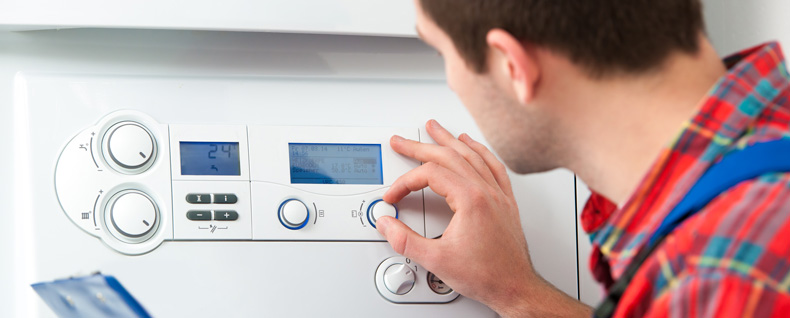It is fairly widely known that rental properties are required to have a Landlords’ Gas Safety Inspection prior to being let and then at least annually thereafter while the property is tenanted. The test itself ensures that all gas appliances and gas pipework from the meter in the property are safe, and a Landlords’ Gas Safety Record will be provided by the Gas Engineer as proof that the property met current standards at the time of testing. A copy of this certificate must be provided to the Tenants and a copy must also be retained by the Landlord or Letting Agent for 2 years.

Testing must be carried out by an appropriately qualified Gas-Safe Engineer – their Gas Safe Identity card will confirm the types of appliance and supply that they are qualified to work on. If you are in any doubt over their ability or qualifications you can double-check on the Gas Safe website for peace of mind.
Click here for advice on reducing void periods, property damage and rent arrears.Hints & Tips – Things to be aware of:
A Landlords’ Gas Safety Inspection confirms that the gas system and appliances are safe for use, not that they are in good working order. We recommend an annual service of the gas boiler to ensure that it stays in good working order, minimising the risk of breakdown at the most inconvenient time.
The inspection itself may be a pass, but there may also be advisory notes covering things that need attention to bring the installation up to current standards. These things, if ignored, may lead to a failed test next year – so they are worth getting done to keep the system in optimal condition.
Service contracts with companies like British Gas, Homeserve or Swale can be tempting to landlords, giving peace of mind that in the event of breakdown some or all of the cost of repair is covered. We agree that spreading the potential cost of breakdown repair (which can easily run into the £200 - £400 range) can be a good option, especially as the cost of the policy is tax deductible (See Landlord Tax Guide). If you do decide to take out this type of cover and an annual Landlords’ Gas Safety Inspection is included, you should ensure that all of the appliances in the property are included also – if not, the Gas Safety Test will not include them either.

The location of your gas boiler may also mean you have other things to take into consideration:
- Gas boilers fitted in bedrooms should also have a carbon monoxide alarm installed in the room. For more information please see our Carbon Monoxide Alarm regulations guide.
- Gas boilers fitted on an internal wall will have a flue that runs to an external wall to vent combustion gases from the boiler. This flue must be accessible to the Gas-Safe Engineer to check as part of the Gas Safety Inspection. If the flue runs through a ‘void space’ in the ceiling access panels must be fitted every 2 metres or at every join in the flue so that they can be assessed as part of the inspection.
Gas fires are quite a common feature in rental property stock – they are also one of the most common reasons for a Gas Safety Inspection failing. The room they are situated in must have adequate ventilation and they must be up to current standards safety-wise. Before you let the property it’s worth considering if the gas central heating is sufficient without the gas fire in addition – if so, get the gas fire removed so there is one less thing to worry about.
Find out more about smoke and carbon monoxide alarms here
Lastly, ensuring that there are full instructions for the operation of the gas boiler including any programmer or timer system and any gas appliances will make sure that the tenants have the required information to be able to operate them correctly. This will potentially save time and money in explaining to them how to use the gas appliances. Also, with regard to combination or system boilers that require pressurisation to work, if the tenants have specific instructions detailing how to re-pressurise the boiler this can also save unnecessary engineer call-outs.
Download our guide on Gas Safety RegulationsIf you have any questions about gas safety, please go to our contact form and we will be happy to help.